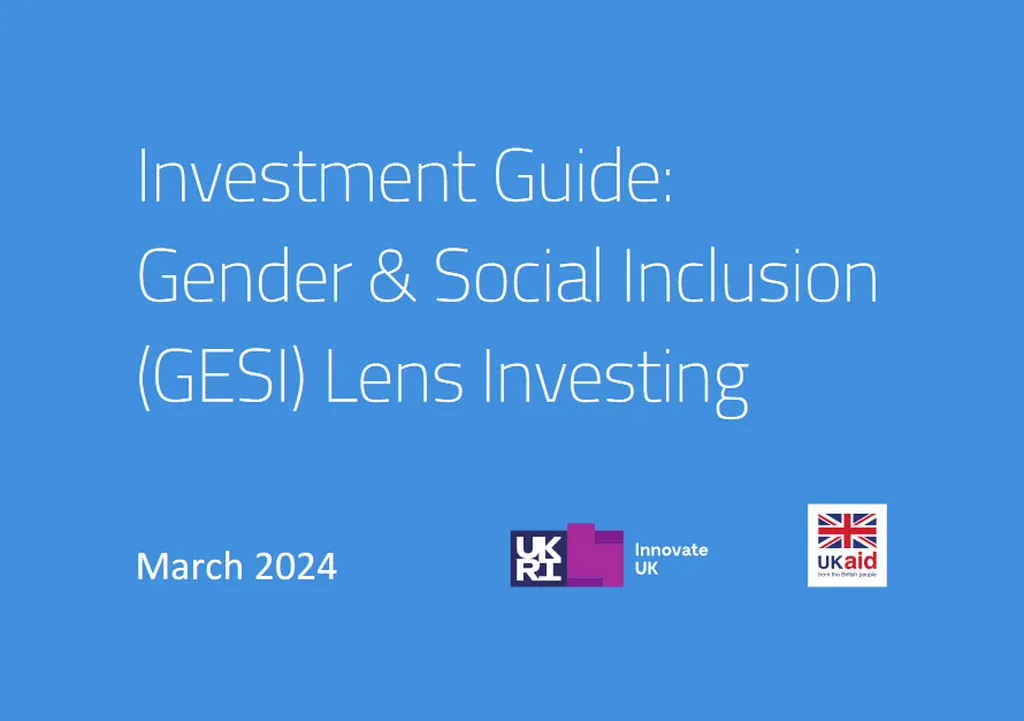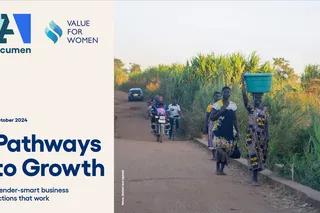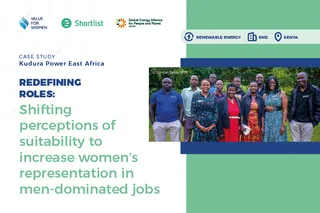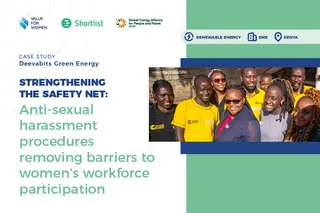Investment Guide: Gender & Social Inclusion (GESI) Lens Investing

Investment Guide: Gender & Social Inclusion (GESI) Lens Investing
Climate finance and impact investing in emerging markets is increasingly including a gender lens. Investors in emerging markets are increasingly recognising the role that energy access and clean energy technologies play in reducing gender and social inequalities. As such, they are increasingly adopting a GESI lens in capital allocation and investment decision making. GESI ensures that everyone contributes to and benefits from markets and institutions, regardless of their gender, sexuality, race, ethnicity, disability, or other characteristics.
This Guide was developed for clean energy and energy access enterprises operating in emerging markets. The Guide focuses on the GESI approaches within investments made primarily by angel, impact, gender lens, and venture capital investors, but also showcases information on investors that provide public capital, e.g. financing provided by national governments and international organisations through investment funds and development finance institutions in the clean energy and energy access sectors.
This Commercialisation Guide was commissioned by Energy Catalyst and prepared by Value for Women.

Dr. Silvia Emili oversees, manages and delivers a global portfolio of innovative gender and business projects, ensuring they meet the highest standards. Her zone of expertise is at the intersection of renewable energy and energy access, gender and social inclusion, advising businesses and organizations in this space.

Seema is a development economist with research and policy experience in global development issues, including global economic governance; trade; climate chaos; health; gender; organizational strengthening and strategy; diversity and inclusion; and research and research networks. Seema has a PhD in Economics and Business and an MSc in Development Economics and Policy, both from the University of Reading in the United Kingdom.

Yvonne delivers technical assistance services to support small and medium enterprises and entrepreneurial ecosystem actors to take a gender lens to their day-to-day work. She brings to her work a background in social enterprise management, last-mile distribution and entrepreneurial ecosystems – including seven years of experience managing social enterprises in developing countries – along with a passion for supporting women’s empowerment throughout businesses and value chains.

Luis worked as the Director of Advisory Services at Value for Women until Oct 2025. He led a global team of consultants and advisors. Prior to his work at Value for Women, Luis led research on unpaid care work and time-use data for the United Nations Foundation. From Mexico, Luis has worked extensively in Latin America and the Caribbean, Africa and Southeast Asia. He holds a BSc degree in Business Administration from Boston University’s Questrom School of Business and a Master's degree in International Relations from the Fletcher School of Law and Diplomacy at Tufts University, USA.

Erica is engaged in the delivery of a global portfolio of innovative gender and business projects. She provides technical assistance to, and leads research and business strategy development with, small and medium enterprises, investors and other ecosystem actors towards more equal business practices. She has worked on all sides of the equation — managing investment for corporates and foundations; leading internal gender-inclusive strategy development and implementation; overseeing and designing gender-transformative programs; and developing and managing multiple women’s empowerment social enterprises.

Leah plays a crucial role in supporting the execution of specific projects within practice areas at VfW including aiding in project management, cultivating client relationships, coordinating internally, planning work, and managing project systems and processes. With a deep commitment to fostering gender equality and inclusivity, Leah is a gender specialist with a diverse background in research, international development, human rights, financial inclusion, and energy.


